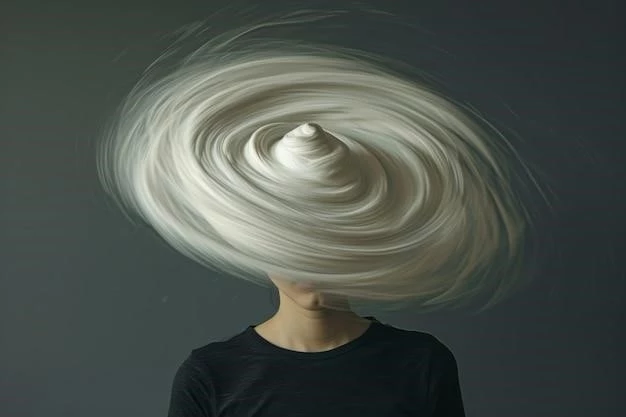The world feels vibrantly alive around us. We see the azure sky, smell the rain-soaked earth, feel the warmth of the sun on our skin. But how does this subjective experience, this rich tapestry of sensations, arise from the intricate workings of our brains? This question, the relationship between perception and consciousness, has captivated philosophers and scientists for centuries. As someone deeply interested in this intersection, I’ve spent considerable time exploring my own consciousness and how it’s shaped by my perceptions.
My Journey into the Sensory World
I recently decided to conduct a little experiment on myself. I sat in my favorite armchair, a cup of herbal tea steaming on the table beside me, and closed my eyes. I focused on each sense in turn, trying to isolate the raw data before my brain began its intricate processing.
- Hearing: The low hum of the refrigerator, the ticking of the clock on the wall, the distant chirping of birds outside – these sounds formed a constant backdrop to my experience.
- Touch: The soft fabric of my chair against my skin, the smooth warmth of the mug in my hands, the gentle breeze brushing past my cheek – these tactile sensations grounded me in the physical world.
- Smell: The earthy aroma of my tea, the faint scent of old books from my bookshelf, the fresh, clean smell of the air after a recent rain shower – these smells evoked memories and emotions.
- Taste: The lingering taste of breakfast, the refreshing coolness of water, the anticipation of the sweet and spicy flavors of dinner – taste buds danced on my tongue, creating a symphony of flavors.
Opening my eyes, I was struck by how quickly my brain assembled these disparate sensations into a coherent whole. The visual information – the warm glow of the lamp, the vibrant colors of the paintings on my wall, the intricate patterns of the rug – seamlessly integrated with the other senses, creating the complete picture of my living room.
Perception: The Building Blocks of Our Reality
This simple exercise made something profoundly clear: our conscious experience is not a direct reflection of the world but rather a construction, a meticulously woven tapestry of our perceptions. Our senses act as the threads, carrying information about the world around us to the loom of our brains. It’s here, within the intricate neural circuitry, that perception transforms raw sensory data into meaningful experiences.
Think about it: we don’t “see” light waves; we see colors and shapes. We don’t “hear” sound waves; we hear music and language. Our brains, through the process of perception, interpret these signals, imbuing them with meaning and significance.
The Curious Case of Illusions
The fascinating world of optical illusions provides further evidence of perception’s active role in shaping our reality. Take the classic Müller-Lyer illusion, where two lines of equal length appear different because of the direction of the arrowheads at their ends. Even when we know the lines are the same length, our brains can’t help but perceive them differently.
This illusion, along with countless others, highlights that our perception is not a passive reception of information but an active interpretation, a process influenced by our past experiences, expectations, and even our current emotional state.
Attention: The Spotlight of Consciousness
But what about the vast amount of sensory information that bombards us every second? Do we consciously perceive everything our senses detect? The answer, of course, is no. We can’t possibly attend to every sight, sound, smell, taste, or touch simultaneously. That’s where attention comes in.
Attention acts like a spotlight, illuminating certain aspects of our sensory experience while leaving others in the shadows. Imagine walking through a bustling city street. Your senses are flooded with information, but your attention might focus on the sound of a street musician’s saxophone, the aroma of freshly baked bread from a nearby bakery, or the sight of a friend waving across the street.
This selective attention plays a crucial role in shaping our conscious experience. It determines which aspects of our environment we become aware of, which thoughts bubble to the surface of our minds, and which memories we recall.

Beyond the Five Senses
While we often focus on the traditional five senses, it’s important to remember that our perception extends beyond sight, sound, smell, taste, and touch. Proprioception, our sense of body position and movement, allows us to navigate the world and interact with objects. Our sense of balance keeps us upright. And interoception, our sense of our internal bodily states, provides crucial information about our hunger, thirst, pain, and even our emotions.
These often-overlooked senses play an equally vital role in shaping our conscious experience, reminding us that our perception is a multifaceted and dynamic process.

The Enigma of Consciousness
Despite significant advances in neuroscience, the question of how consciousness arises from the physical processes of the brain remains one of the most profound mysteries in science. How does the electrical firing of neurons, the intricate dance of neurotransmitters, create the subjective experience of being, of feeling, of knowing?
While we may not have all the answers yet, one thing is clear: perception plays a fundamental role in shaping our consciousness. It provides the raw material, the building blocks, from which our subjective reality is constructed. By understanding how perception works, we gain valuable insights into the nature of our own minds and the incredible world we inhabit.
Continuing the Exploration
My exploration of perception and consciousness is an ongoing journey. Every day, I’m fascinated by the way my senses interact with the world, how my brain assembles those sensations into a cohesive experience, and how my attention shapes what I consciously perceive. It’s a journey filled with wonder, awe, and a deep appreciation for the intricate beauty of the human mind.










